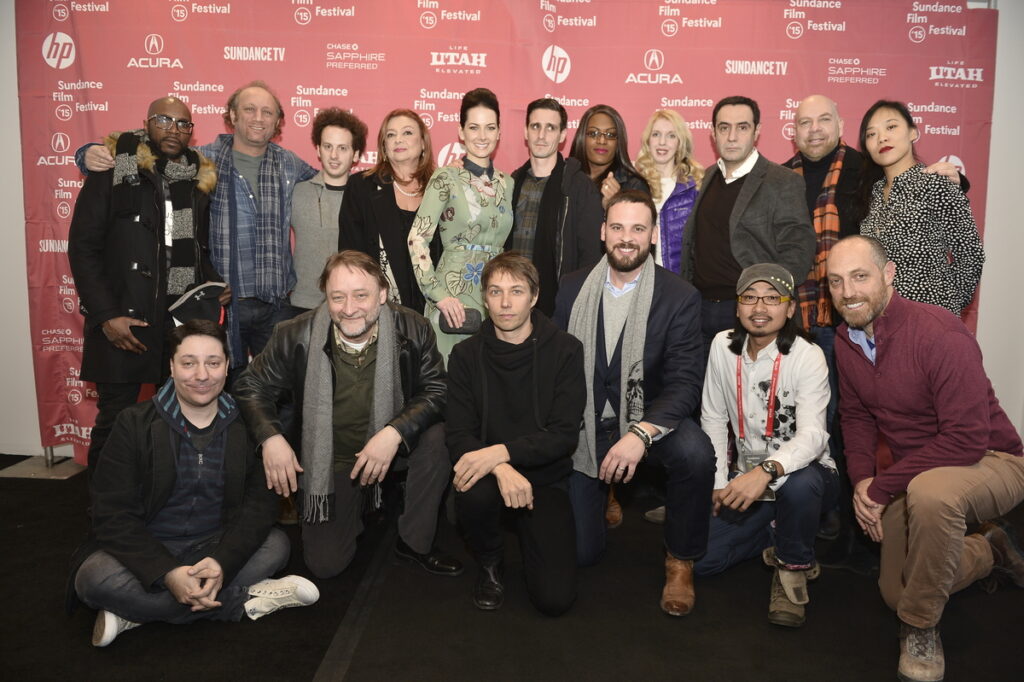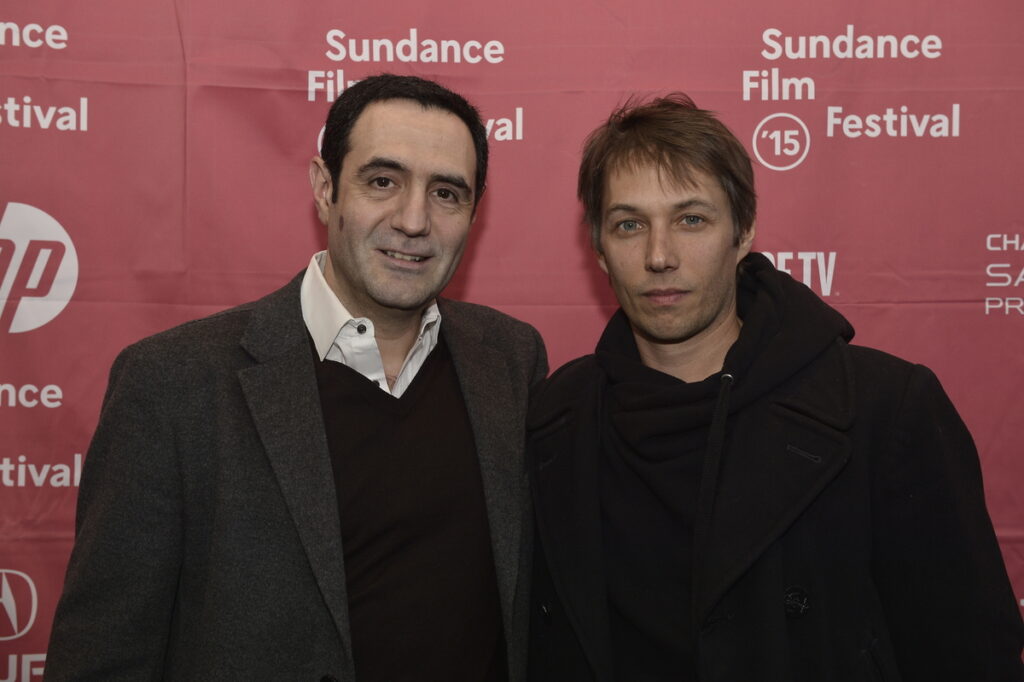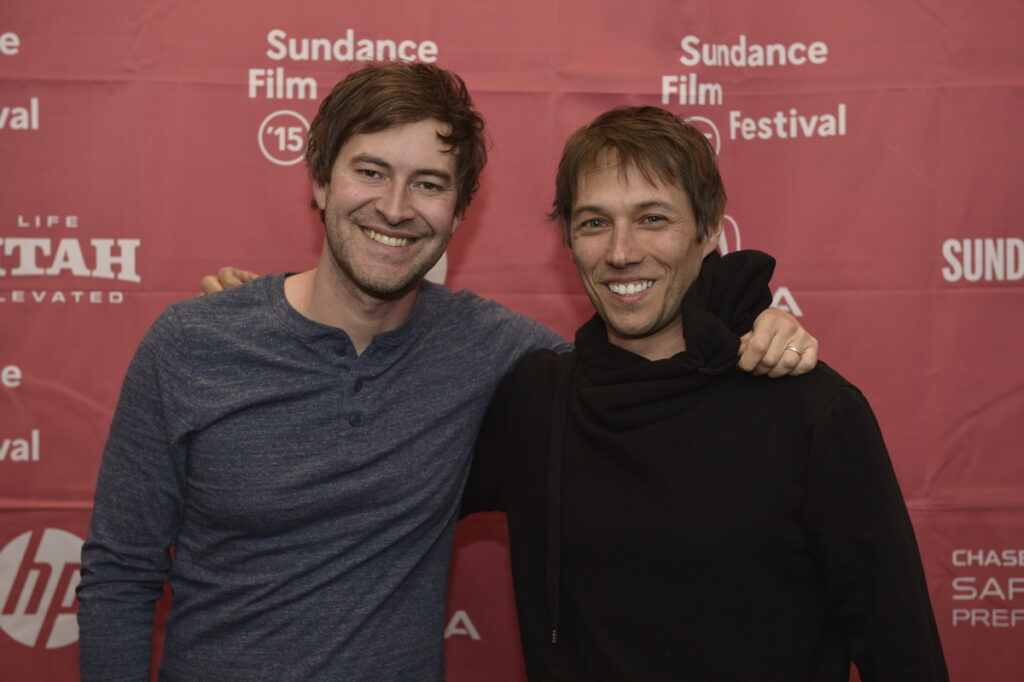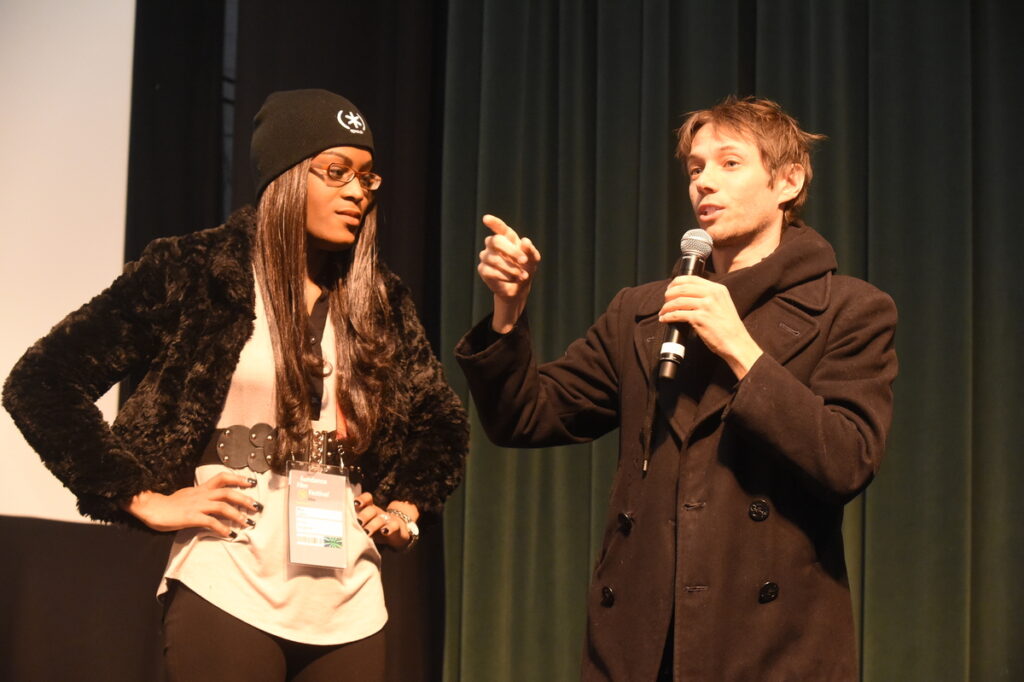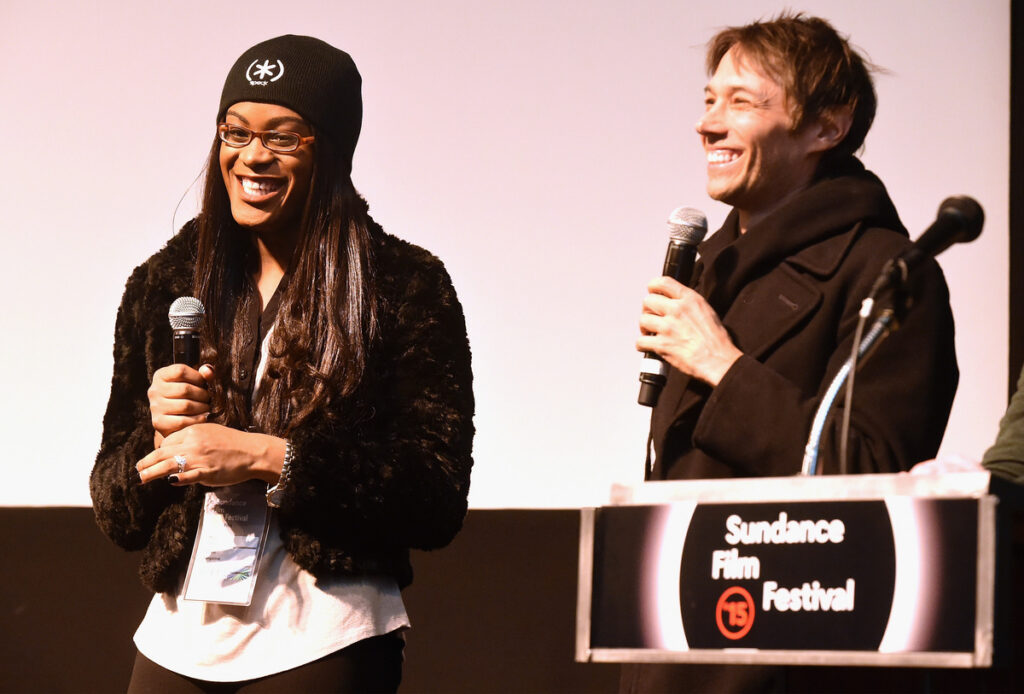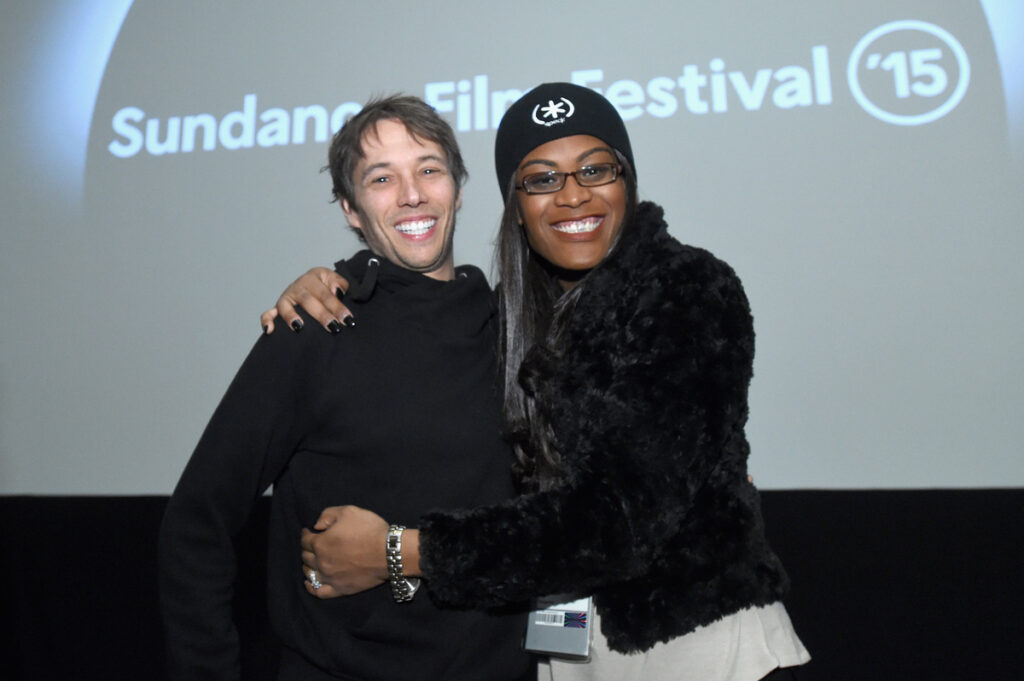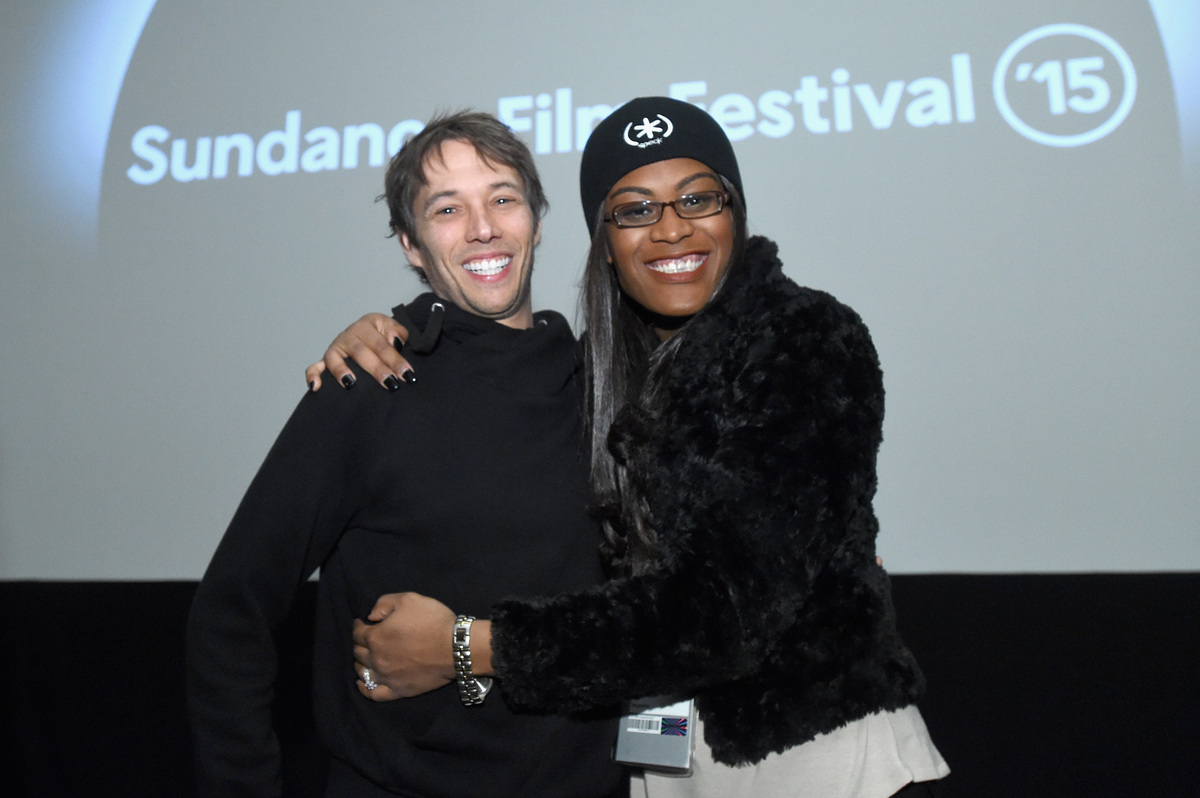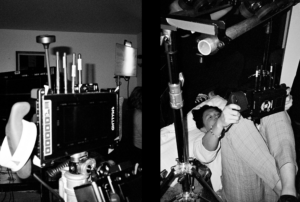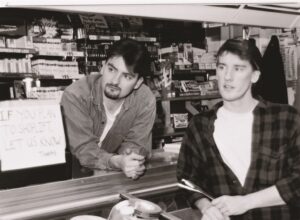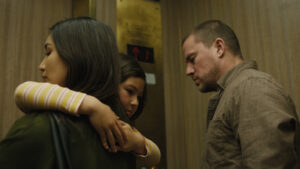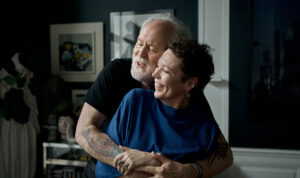Tangerine director Sean Baker and cast member Mya Taylor attend the film’s premiere at the 2015 Sundance Film Festival.
By Jessica Herndon
When Tangerine premiered at the 2015 Sundance Film Festival, it immediately captivated audiences with its raw energy, humor, and innovative filmmaking. The comedy-drama following two trans women — Sin-Dee (Kitana Kiki Rodriguez) and Alexandra (Mya Taylor) — as they comb the streets of Los Angeles in search of a cheating boyfriend, did more than just tell a story,it shifted the conversation around indie films. Tangerine proved that with creativity, authenticity, and resourcefulness, a small-budget film could have a massive cultural impact.
Directed by Sean Baker and co-written with Chris Bergoch, the film first broke new ground by being shot entirely on an iPhone. Alireza Ghasemi, co-writer and director of In the Land of Brothers, which premiered at the 2024 Sundance Film Festival, was drawn to the film’s unique approach. He said, “The intriguing aspect that caught my attention was that the entire film was shot using an iPhone 5s. As a 25-year-old film student, this unique approach piqued my curiosity. Soon, I discovered the Sundance YouTube channel, and Sundance stood out as a Festival I wanted to be a part of, renowned for its commitment to innovation and high-quality storytelling.”
It wasn’t just the fresh method of shooting that grabbed attention; it was the film’s exploration of Los Angeles’ marginalized communities and its authentic portrayal of two trans women, played by trans performers. The film’s casting became a model for inclusivity in cinema. By casting trans actors to play trans characters, Tangerine took a step toward a more honest and empowering form of representation.
Baker didn’t just create a film about trans women; he made a film that centered on their experiences and humanity, making space for trans narratives that felt real, grounded, and unapologetically their own. This approach stood out in an industry where trans actors were rarely offered roles that fully embrace their identities. The premiere was a defining moment for independent cinema, pushing the boundaries of what was possible on a limited budget while amplifying the voices of those too often silenced on screen.

Shot in the lesser-known streets of Hollywood, Tangerine was a love letter to a specific area and crowd in LA. For many, Donut Time, which sat on the corner of Highland Ave. and Santa Monica Blvd. was a landmark. When the shop closed its doors in 2016, many mourned the loss of a “home to a vibrant community of trans women.” The film’s setting wasn’t just a backdrop; it was a character, giving viewers a rare glimpse into neighborhoods that are often overlooked in mainstream media. Through fast-paced sequences, Baker captured the pulse of the city, offering a nuanced view of its gritty essence.

Tangerine also earned its place in history with accolades like Mya Taylor’s Best Supporting Actress award at the 2015 Film Independent Spirit Awards — a historic win as the first openly trans woman to receive this honor. The film’s bold vision and authenticity were celebrated not only by critics but also by filmmakers who saw it as a defining work in independent film.
The film’s impact radiated through the cultural landscape, resonating with a diverse audience and elevating the voices of the LGBTQ community. As queer filmmaker Amrou Al-Kadhi, who wrote and directed Layla, which premiered at the 2024 Sundance Film Festival, reflected: “A film both joyous and deep, and teeming with queer love. I want my films to feel like that.”
Tangerine became a groundbreaking piece of queer cinema, infusing its narrative with humor, heartache, and depth. To toast the film’s 10th birthday, look back with us at iconic photos that capture the moment when the film first stunned at the Festival.
